Bosnia year 2007 stamp Johann Wolfgang Goethe ☀ MNH**
🇧🇦 Bosnia & Herzegovina 2007 – Johann Wolfgang von Goethe Stamp
📅 Year of Issue: 2007
👤 Subject: Johann Wolfgang von Goethe (1749–1832), the renowned German writer, poet, philosopher, and cultural figure — widely regarded as one of the greatest literary figures in Western history.
🏷️ Stamp Details:
- Issued as a commemorative postage stamp by Bosnia and Herzegovina (often specifically listed under the Republika Srpska administration issues).
- The stamp commemorates the 175th anniversary of Goethe’s death.
- It appears on collector listings as a single stamp (MNH – Mint Never Hinged) with the inscription relating to Goethe and the anniversary of his passing.
📦 Format & Availability:
- Typically seen as 1v (one‑value) issue — sold individually on philatelic dealer sites.
- Often categorized as part of topical “Famous People / Literature” sets from Bosnia and Herzegovina’s 2001–2010 period.
- These are collector topical stamps in mint condition; catalogues might list them under Bosnia and Herzegovina (Serb Admin.) issues for 2007.
🎨 Design Note:
Although detailed design descriptions from postal authorities aren’t widely published online, many collectible stamps from this period feature a portrait or symbolic graphic of the person commemorated — in this case Goethe — and include the year and country name as with standard Bosnia and Herzegovina issues.

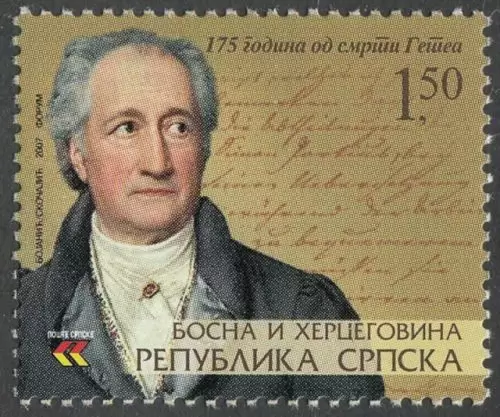
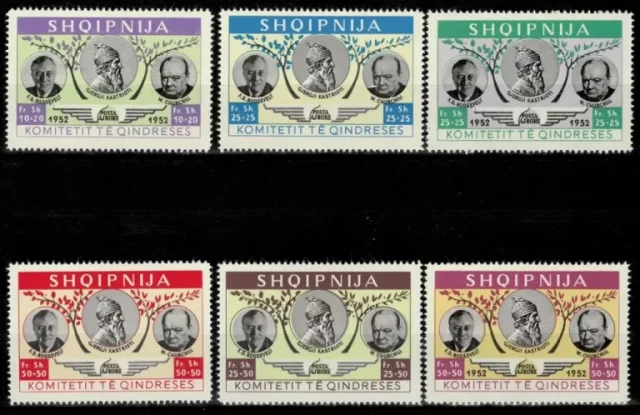
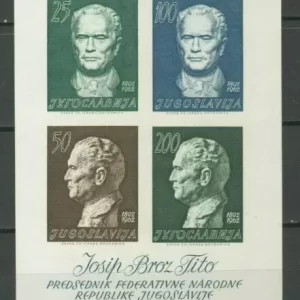
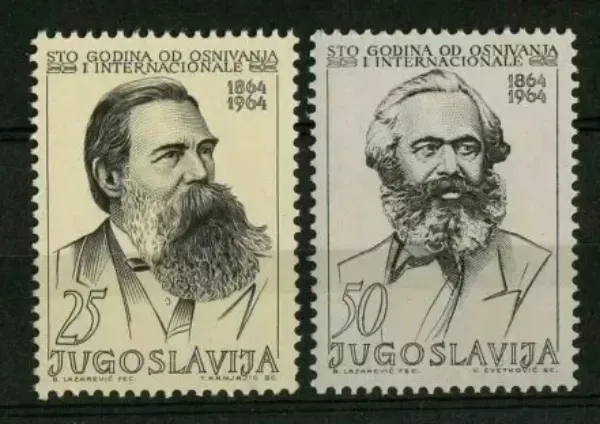
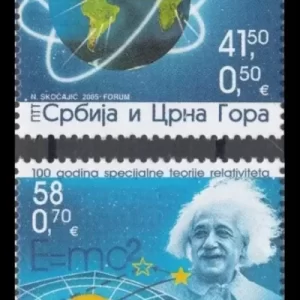

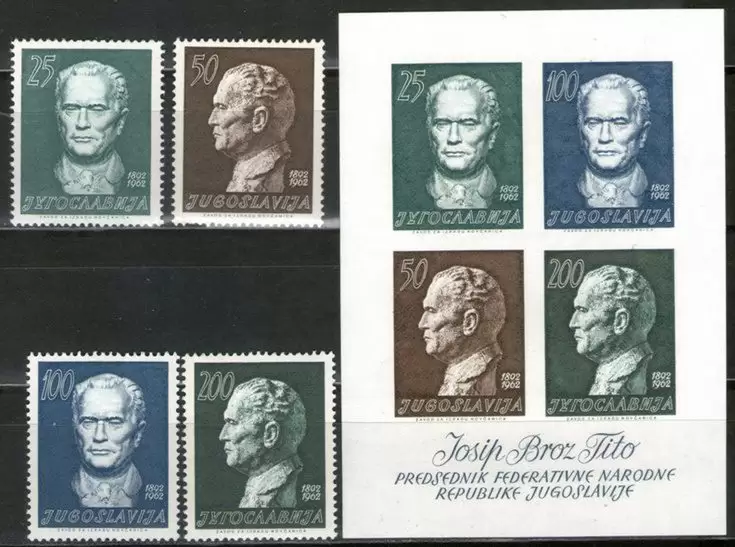

Reviews
There are no reviews yet.